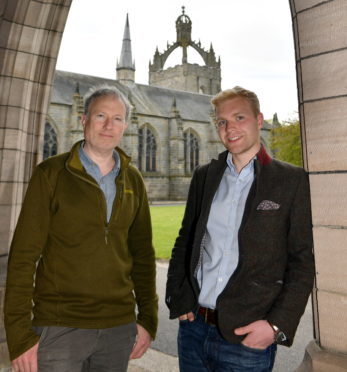A young north-east student has spoken about the “prejudice and racism” he has experienced as a member of the Travelling community in Scotland.
David Donaldson, who is studying anthropology and international relations at Aberdeen University, has helped organise a series of events at this week’s May Festival to try to change perceptions of Travellers.
He has argued that recent stories about people leaving illegal encampments in the north-east strewn with rubbish and sparking tensions with local communities do not represent him or the majority of his colleagues.
Mr Donaldson told the Press and Journal: “I am a Scottish Traveller, with Romany heritage and, throughout my life, I have faced many issues, setbacks and prejudice because of my identity.
“Many young Travellers feel that they have to hide who they are in order to get the same opportunities as other people.
“I myself had to hide my identity at high school in order to navigate the institutional prejudice and relentless racism that is faced by Travellers.
“I am now at university, but I have become a campaigner and activist for my community in Scotland in the hope that one day all Traveller children will have the confidence to be open about their ethnicity and not have to hide it in fear.” Mr Donaldson has been collaborating with Dr Thomas McKean of the Elphinstone Institute at the university to create what they describe as a “major programme of events” about the whole history of Travellers.
This will involve shows, concerts, story-telling events and an eclectic range of other actitivities, all designed to change the way gypsies and other itinerant groups are depicted in the wider world.
Mr Donaldson added: “As a spokesperson and activist for my community, a lot of the work I do is to show the unique culture of my people, and highlight the many contributions we have made to Scotland over the last 1,000 years.
“The inspiration for the events at MayFest is the unique culture of Scottish Travellers and our many struggles to retain our way of life in contemporary Scotland.
“The events will be focused around ‘the camp’ on Elphinstone Quad. This will consist of a traditional Bough Camp, a tent made from hazel and canvas, and this is to represent the old nomadic ways of Scottish Travellers, while there will also be a caravan to represent the contemporary lifestyle of many Travellers.
“There will be many other elements to the programme as well, including photo exhibitions, traditional ballad singing, presentations from Young Travellers, film screenings, a play performed by Traveller and Settled children, as well as academic talks and presentations related to Scotland’s Traveller community.
“This will be the first time a programme of events on this scale has ever been held at a Scottish university.
“I believe it will help to challenge negative stereotypes and racist perspectives about the Scottish Traveller community.”
Further information about the events is available at:
https://www.abdn.ac.uk/mayfestival/
